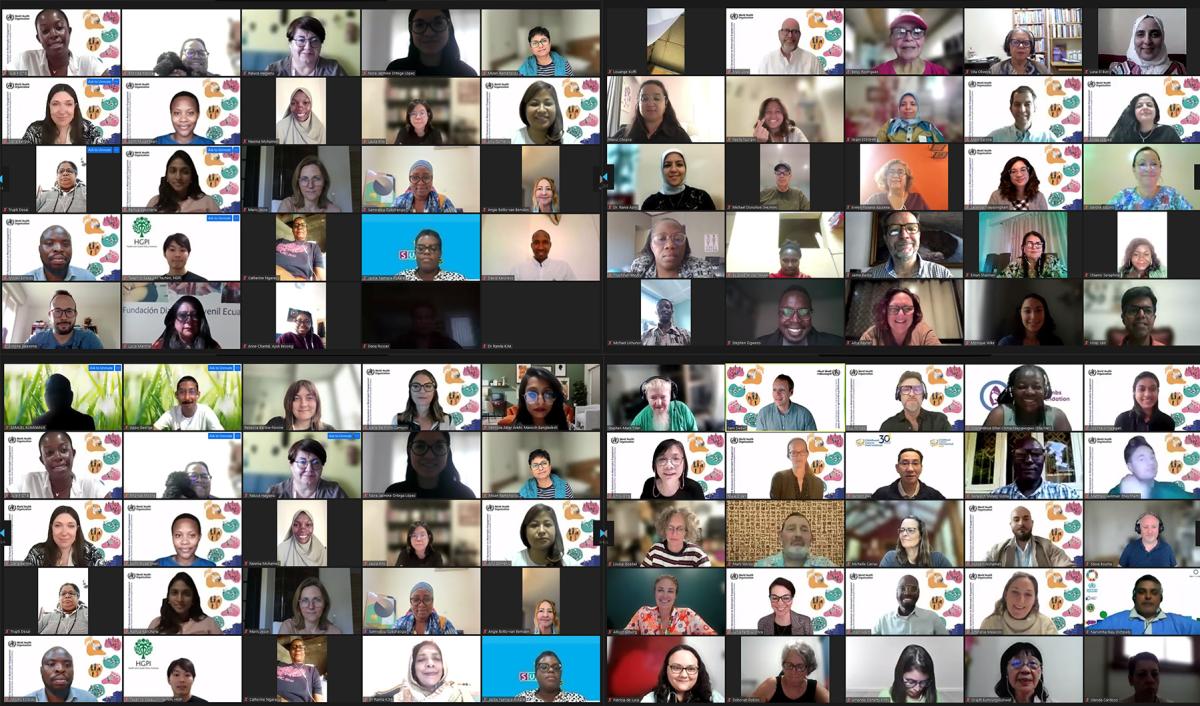WHO
The silent killer: why chronic respiratory disease deserves global attention
Multisectoral Action
25 Nov 2024
World Health Organization | 16 May 2024
Continuing the work started on the first day of the WHO Symposium on Meaningful Engagement, some 150 participants joined the the breakout sessions and focus group discussions on the second day of the Symposium on 16 May 2024. Today’s discussions focused on promoting and implementing the WHO Framework for Meaningful Engagement in countries around the world.
The WHO Symposium supports and accelerates the co-creation and -implementation of equitable NCD policies and programmes by formally recognizing the knowledge and expertise of individuals with lived experience. Symposium meetings serve to develop strategic inputs towards the upcoming Fourth High-level Meeting of the United Nations General Assembly (HLM4) in 2025, and support knowledge exchange, collaboration, and new strategic alliances between individuals with lived experience and Member States.
Mansi Chopra, a Public Health Research Scientist, Senior Consultant and Symposium Steering Committee member opened the second Symposium day discussing the initial impact of working with the the Framework for Meaningful Engagement at country level in India and Nepal.
In our community conversations with people living with multiple long-term conditions in India and Nepal, we learned a great deal on how to further strengthen meaningful engagement. Our work is aligned to the WHO Framework on Meaningful Involvement including community incentivization, development of SOP’s for inclusion of diverse individuals, promoting the active participation of people with lived experience in decision-making committees, and a commitment to acknowledge, address and eliminate all forms of stigma and discrimination."
Mansi Chopra, Symposium Steering Committee Member, HRIDAY Deputy Director
Maia Olsen and Yvonne Arivalagan with the WHO Global Coordination Mechanisms on NCDs presented the WHO Framework on Meaningful Engagement, introducing participants to key enablers of meaningful engagement and discussing opportunities to promote and facilitate the frameworks implementation.
Joab Wako, a fellow Symposium Steering Committee member working with Transplant Education Kenya, then introduced the days focus group discussions, each deep-diving into key enablers of meaningful engagement of people with lived experience: sustainable financing, redistributing power, eliminating stigmatization, integrated approaches, capacity-building, and institutionalizing engagement.
“The WHO Framework on Meaningful Engagement gives us a structure to move from intention to action. Instead of vague promises and grey areas, we now have a black and white outline of accountability and inclusion. No more tokenism! With the Symposium, we have concrete evidence that progress is being made for meaningful engagement of people with lived experience.”
Joab Wako, Symposium Steering Committee member, Transplant Education Kenya
The following group discussions loked at challenges and opportunities along all enablers identified in the framework: What are the major gaps in sustainably financing and remunerating engagements with individuals with lived experience? How can equal participation, safe spaces, respect, inclusiveness and diversity in all roles be upheld in joint decision-making? How can stigmatization be addressed eliminated more effectively? And where is meaningful engagement yet to be formally integrated and embedded into all relevant programme areas and decision-making processes?
The second round of group discussions then worked out areas of immediate action and next steps, particularly on how the symposium can propel newly identified follow-up action, while ensuring to reach people and includes diverse voices and values in its decision-making processes.
Insights from this first meeting of the Symposium will be compiled into a draft advocacy strategy and action plan towards HLM4, and further discussed at the next Symposium meetings. Participants are also invited to join the Lived Experience community of practice on the Knowledge Action Portal on NCDs, which will launch shortly.
Guy Fones and Maia Olsen from the WHO Global Coordination Mechanism on NCDs rounded up the session by highlighting immediate opportunities for action, including two open consultation processes for the International Dialogue on Sustainable Financing for NCDs and Mental Health and on inputs to the WHO Director General’s report for the 4th HLM on NCDs in 2025.

Allison Ekberg, a Technical Officer with the WHO Regional Office for Europe, and Mansi Chopra with the Symposium Steering Committee closed the meeting with perspectives from a WHO Regional Office and the Symposium Steering Committee.